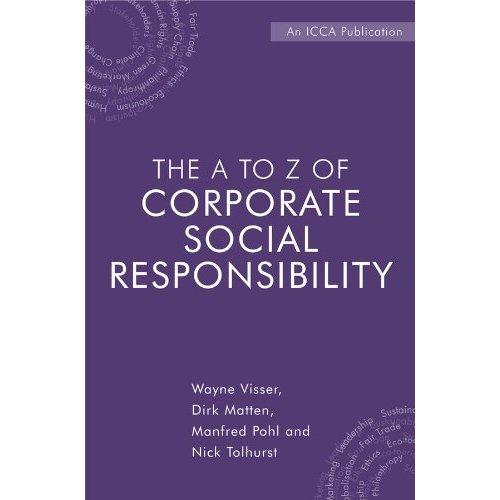Gespeichert von dilemma am

Ever wondered about how ethics play a role in your product or service consumption? Or how marketing ethics plays a role in making decisions in your product and service consumption, then keep on reading.
“Blog review about ‘The A to Y of corporate social responsibility. By Wayne Visser, Dirk Matten, Manfred Pohl and Nick Tolhurst.‘
I read the book ‘The A to Z of corporate social responsibilty‘ from this book I chose two chapters. Marketing Ethics by Philip Kotler (321) Ethical Consumption by John Sabapaty (195-198)
Both men have some interesting things to tell about Ethics and how they are applied. First I will talk about the chapter of Philip Kotler.
Kotler talks about Marketing Ethics, he tells about how ethics are used in marketing. This is what I got out of his statement.
Marketing ethics is about product development, the pricing, and how to communicate in marketing. It is important to use these ethics to operate in an honest way towards the interest of the buyer. If these ethics are not used the buyer will be mislead. The marketing ethics are violated when the companies do not use flexible prices but instead use artificial ways. These days artificial prizing comes forth from marketing manipulation and is illegal. An example for this is when a supermarket changes their prices higher or lower due to higher or lower demands of supplies, instead of keeping the price regular. So it is only in their best interest and not in the buyers best interests.
Philip Kotler makes a good statement it is important to keep the interest of the buyer in mind when you apply marketing ethics to product development.
John Sabapaty talks about other ethics, he talks about ethics in consumption. I also read his chapter and I will tell you about what I learned from it.
Ethical consumption is more about how consumers see the product or service and how they create a more social, economic or environmental impacts or changes. It is also a product for consumers awareness raising. Ethical consumption requires consumers who are above average levels of income and have a high level of education. Consumers individually apply value based preferences to the products and services they consume. By doing this they create ‘ethical consumption‘ for themselves. However ethical consumption can mean something else for religious societies or NGOs of different stripes and outlooks. They have played a big role in selecting products for targeted consumers.
Ethical consumption can be applied to any product or service. The range of products and services that are ‘ethical‘ have expanded immensely. The issue of ethical consumption has raised a complex with the buyers. They become aware oft he ethical issue regarding buying products or services. Ethical consumption has become a brand for itself.
For the most part I agree with John Sabapty, but I question the part about that that ethical consumption requires high level of education or an income above average. I think we all are all consumers who think about the ethics in buying a product. Maybe the people that don’t have much income will not think twice about the ethics of the products or service they buy, but they are aware of the ethics in this matter.
Overall both men have made a good statement and they made me think about ethical consumption and marketing. They both go hand in hand.


